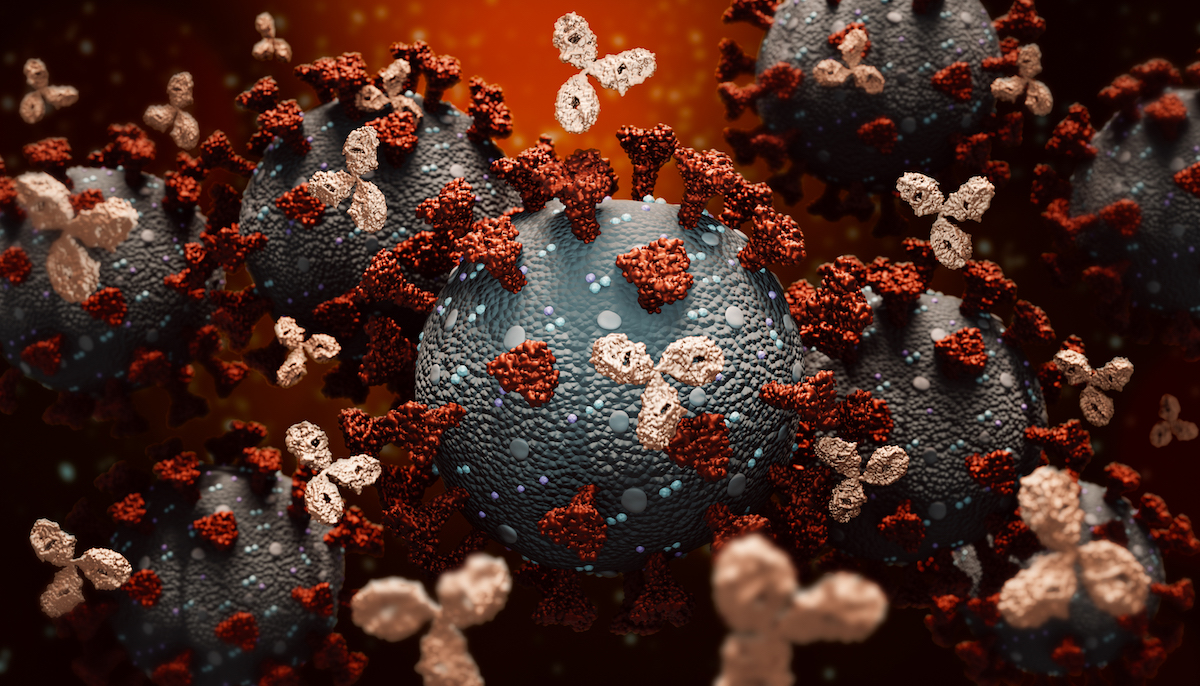<< Back
More Than 100 Patients Have Received New Monoclonal Antibody Therapy

January 13, 2021
Since the U.S. Food and Drug Administration issued an emergency use authorization (EUA) in November for the investigational monoclonal antibody therapy bamlanivimab for some COVID-19 patients, 103 individuals have received the treatment across the Hartford HealthCare system.
In mid-December, the first three COVID-19 patients treated at Backus Hospital in Norwich with monoclonal antibodies were able to recover at home, avoiding hospitalization.
“At the onset, it seemed as if they had a good chance of ending up hospitalized,” said Dr. Kyle McClaine, chief of Emergency Services and EMS medical director at Backus, “but I’m pleased to see that all are going through the usual course of the illness at home without needing hospitalization.”
The treatment, delivered by infusion, is recommended for patients who do not initially meet criteria for inpatient admission, but are at high risk for complications and progression to more severe COVID-19. Criteria include patients over age 75, and younger patients with significant cardiovascular or respiratory disease, immune compromise, diabetes, obesity and those with congenital and developmental disorders. Monoclonal antibodies, proteins made in a laboratory, mimic the immune system’s ability to fight of viruses and other harmful antigens.
In early November, the U.S. Food and Drug Administration issued an emergency use authorization (EUA) for the investigational monoclonal antibody therapy bamlanivimab for the treatment of mild-to-moderate COVID-19 in adult and pediatric patients.
The treatment was first given to a patient at Hartford Hospital on December 2. Since then, it has been made available at all of Hartford HealthCare’s acute care facilities, said Dr. Padmanabhan Premkumar, Medical Director, Clinical Documentation, Hartford Hospital.
The FDA approved the drug after a small study had shown that in certain COVID patients with underlying medical conditions, bamlanivimab (or BAM) helped lessen the severity of their illness, and reduced the need for hospitalizations.
“The early results showed that giving this medicine in the first 10 days of symptoms or a positive test result decreased the chance of a subsequent hospitalization from 12 percent to 2 percent,” McClaine said.
Now “we are in the first phase of the program, initially targeted at COVID-positive patients who entered the system through the Backus Emergency Department and are part of an established callback and follow up system,” McClaine said. The plan in the weeks to come is to reach out to doctors in the larger outpatient community and increase the treatment’s availability to additional patients who meet the criteria. Right now Backus has the supply and capability to treat two to four patients a week with BAM.
At Backus, the infusion is offered as a partnership between the existing outpatient infusion center program and the Emergency Department. The Emergency Department helps to identify and screen appropriate patients, and offers a safe and isolated treatment space for known positive COVID-19 patients. The infusion center provides nurses that have the appropriate specialized training to administer the treatment, which is similar to some of the immunoglobulin treatments given to cancer and immune-compromised patients.
There is a risk of allergic reaction to the treatment, similar to all current immune agents in the category, McClaine said, although no side effects have been seen locally. The Emergency Department is ideally suited to manage any complications, and can respond to assist the infusion team immediately. The infusion process takes about four hours, including an hour post-treatment where the patient is monitored for possible adverse effects.